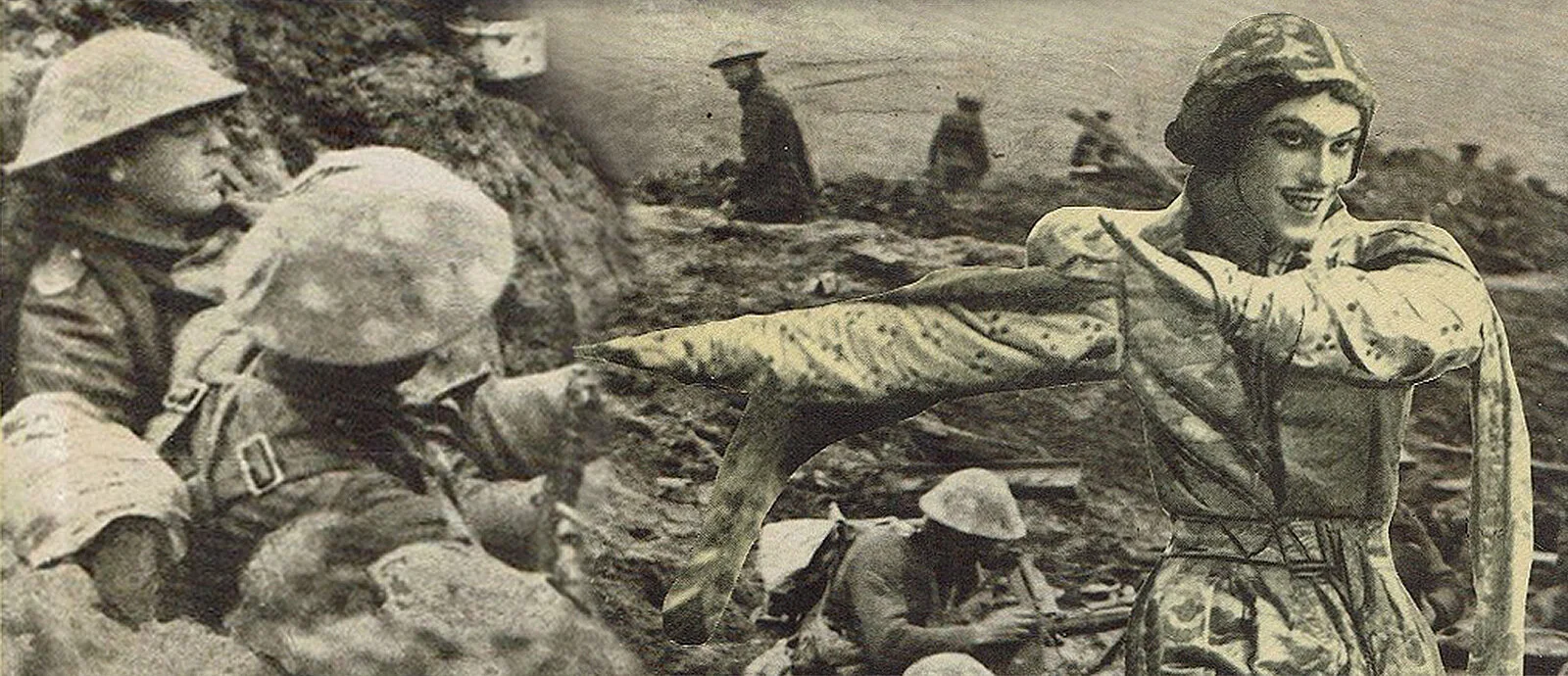Rites of Spring: The Great War and the Birth of the Modern Age
By: Modris Eksteins / Narrated By: Michael Prichard
Length: 14 hrs and 52 mins
So suuuuue me—Best intro to Springtime EVER!
And WHAM!
What better way to kick off Spring than with an audiobook about carnage and mayhem? I mean, after all, ‘twas springtime when the Germans first used gas on enemy troops, so really, if ya think about it, this, Rites of Spring, is the PERfect story to add that little bit o’ spice needed in these newly balmy days. Spring bringing Life’s promise? Suuuure, but how ‘bout we add a bit of death and misery to that?
Cuz that, my friend, is what you’re in for when you pick up and listen to this absolutely amazing book. At first, I wasn’t sure I was going to like it as the first part discusses and analyzes (In DEPTH!!!) Stravinsky’s “The Rite of Spring” and what a stir it caused when it was first performed. But then author Modris Eksteins pulls aaaall the very many threads he’s got going in that discussion (Ballet, dancers, architecture, music, relationships, noted figures) together and brings us: Europe at the time, 1913 (When it debuted) was in the position that there was the heartfelt belief that life, and art, are more beautiful when there’s chaos and destruction. THAT’S why Germans were absolutely thrilled that the country would be going to war: Their lives would become grander than they already were; art, life, death, war: All would intertwine and make something discordantly beautiful, just like “The Rite of Spring”.
And I’ve gotta tell ya, I’ve been around the block a whoooole lot when it comes to military history, so I’m kinda sorta picky about what war books I take to my heart, about what war books actually move me. Eksteins writing here? About the oft-written about WWI where mass slaughter became the name of the day, when death was industrialized and brought about with new technology, with greater creativity (Seriously! The gas thing was dastardly!)?
Well, Eksteins writing style, his word choices, the manner in which he turns a phrase all come together to produce some jaw dropping moments. And even where there’s such horror in the trenches, he manages to insert some of the oh so black humor soldiers lived by to lighten our listening experience. So there are actually a few wry chuckles to go with the hell that was the war. No easy feat, I tell you—Stellar writing. I actually felt the euphoria to start with, then the fear, then the shell shock.
But WWI is only part of the book as time marched on, even though civilians and soldiers thought it never would. There was the flight of Charles Lindbergh (Who, Eksteins posits, wouldn’t have been received with such fervor had countries NOT been left reeling from war). And though publishers said it would never be time for books about war, a little ditty came out called All Quiet on the Western Front which, though it had its detractors, had many, many more people thinking of The Other, those despicable Germans, as human as their own soldiers. This book goes into that book and the literature of the late 20s then the 30s, and it sheds light on how such literature came to be accepted then came to be vilified by the Nazis as they carried out their book burnings.
It aaaall eases us into aNOTHer war, my friends; another World war. Eksteins makes it all flow so naturally that one is left thinking that of COURSE Fascism would be the end result of WWI, a conflict that brought such shame and misery and poverty to a nation seeking honor, to a people seeking honor (And beauty with all its inherent commingling destruction). We’re left to see the rise of Hitler, his ability to portray his enemies and mostly Jews as just so many rats from the trenches, worthy of being shot and killed. Yes, the book ends rather abruptly with the end of WWII, but I felt such satisfaction. I came to see how Eksteins stated his premise, built upon it, and wound it all up with a huuuuge: THIS is Why. Several decades, all chalked up to beauty, grand ideals, ideals worth dying for, ideals worth killing for.
Now lemme get to Michael Prichard’s narration. Whooo boy! First of all, maybe it’s just me, but I’ve never heard “Germany” pronounced in such a way. I’m in no way saying he’s wrong, as I’m a noted dolt, but seriously: Every time he said GerMinnie I wanted to scream. Considering this is primarily about Germany, or GerMinnie, I dunno, I wanted to scream a whole helluva lot. Add to that, he has the tones of a BBC wartime reporter, which works well with, well, the war part, but not so much when he’s narrating what all Eksteins is telling us about ballet and architecture—such strident tones! But, as the book progresses and it all becomes war and mayhem? Perfect.
You have about 15 hours for a jolly ol’ Springtime Listen? Look no further, and discover just how a fine and noble people could do one war then go right around to do another one. This was my Favorite audiobook this week.
Aside from the whole GerMinnie thing… and that could just be me being a dolt…
As an Amazon Associate, I earn from qualifying purchases.




